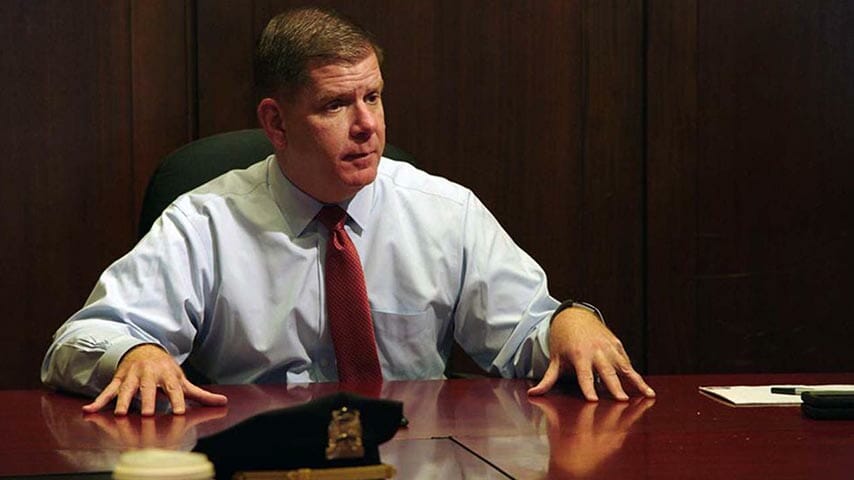Frederick Wiseman’s City Hall Reveals a Political System That Was Never Meant to Save Us
NYFF58 Review

The complex and often paradoxical nature of institutions is the definitive interest of prolific documentary filmmaker Frederick Wiseman, and at age 90 he’s released his 46th film, a four-hour-and-32-minute epic examining Boston’s City Hall. Whether in board rooms, on garbage routes or inside Boston apartments, Wiseman reveals the broad scale and impact of city government in all of its glory—when this well-oiled machine works seamlessly, that is—but also highlights the lack of essential services and resources for Boston’s most vulnerable communities and citizens.
Wiseman paints intimate portraits of parts of society that on the surface might seem banal and unextraordinary, but are in fact exhilarating in their hidden details. The filmmaker’s verité style of filming allows the viewer to not only be a spectator, but a student of the mechanics of these systems. There are no interviews, narration or text to guide us; instead, we’re completely absorbed in the spaces and interactions Wiseman films, eventually becoming embedded in the institutions he unpacks.
While City Hall is certainly drenched in Wiseman’s trademark style, it is also distinct among the filmmaker’s massive catalogue due to his personal relationship with Boston: He was born and raised in the city and taught at Boston University before his film career. His first film, the 1967 documentary Titicut Follies, depicts the squalid living conditions of the Bridgewater State Hospital at the time, located only 25 miles outside of the city. The filmmaker also took to Boston for the similarly-lengthy 1989 film Near Death, which follows patients and medical personnel in the ICU at Beth Israel Hospital. Over 50 years after Titicut Follies and 30 years after Near Death, City Hall feels like a homecoming film for Wiseman in many ways—returning to a city that served as both residence and inspiration for the filmmaker throughout his career.
It is also rife with optimism, especially through the film’s following of Marty Walsh, who has served as Boston’s mayor since 2014. The recurring role of Walsh in City Hall is certainly unique for a Wiseman film, as characters generally don’t reemerge throughout his documentaries, rather serving as kaleidoscopic examples of aspects of institutions interrogated. This is because Wiseman finds Walsh’s duties as mayor to be vital to the function of City Hall—and perhaps because Wiseman sees Walsh as emblematic of the American civil service that is so severely lacking in the White House.
The film follows Walsh to diversity summits, community centers and press conferences, always observing the mayor’s penchant for relating to his constituents on an extremely human level. While some of these attempts are somewhat misguided—such as a scene of Walsh comparing the plight of Irish-Americans during the 20th century to the experiences of a room of Latinx City Hall employees—there is always a feeling of Walsh’s ability to relate to his constituents on a level that appears novel during our deeply unsettling times of political strife. Especially in the context of Trump, Walsh’s dedication to Boston’s Latinx population resulted in the mayor declaring in 2017 that Boston City Hall—including his office—is always available for undocumented minors seeking shelter and a place to sleep. City Hall appears to be somewhat enamored with Walsh’s status as a figure who appeals to humanity in lieu of hate, but it ultimately isn’t ignorant about the vast shortcomings of the system.
-

-

-

-

-

-

-

-

-

-

-

-

-

-

-

-

-

-

-

-

-

-

-

-

-

-

-

-

-

-

-

-

-

-

-

-

-

-

-

-








































